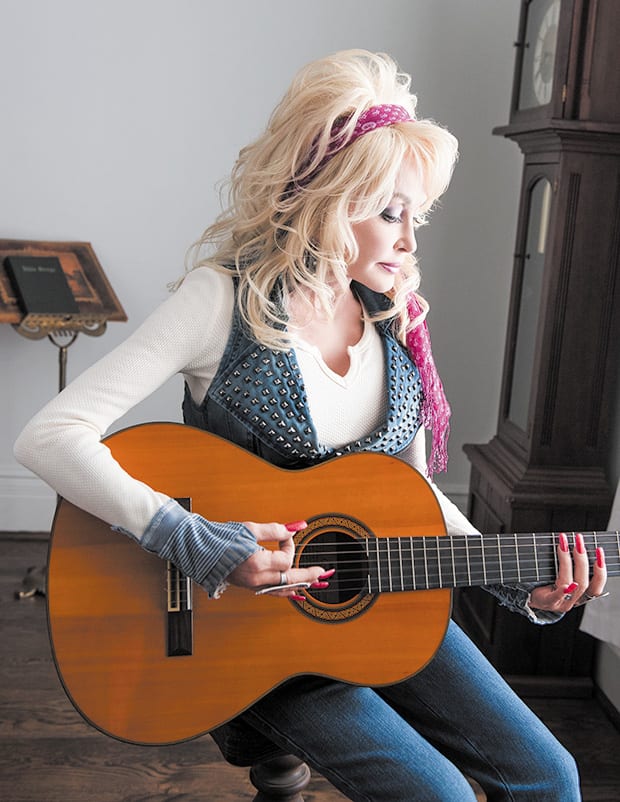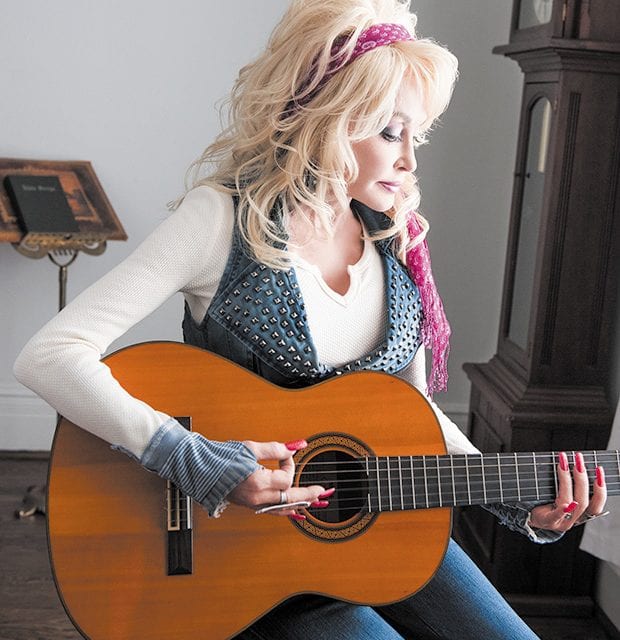Denton writer compiles interviews that trace the career of Dolly Parton

DAVID TAFFET | Senior Staff Writer
taffet@dallasvoice.com
In the Ladies Home Journal, Jim Jerome described Dolly Parton as Patsy Kline in Jessica Rabbit’s body. What editor Randy L. Schmidt learned, though, as he compiled interviews with Parton from the late 1960s through today for his new book Dolly on Dolly, was that Parton herself considered her public persona as something of a character.
She was never offended by the “dumb blonde” label because, as she said, “I’m not dumb and I’m not blonde.”
“She’s so down to earth,” Schmidt said of the country superstar.
Schmidt found almost 100 interviews from sources like The Tennessean, Nashville’s daily newspaper that interviewed Parton early in her career, to Rolling Stone and Playboy, which spent a couple of weeks with her to write about the singer in depth.
A more recent interview by Chris Azzopardi first appeared in Dallas Voice. Schmidt culled the interviews so that information doesn’t overlap and so that, taken together, it traces Parton’s career.
By the mid 1970s, Parton had done about everything she could in country music and began to cross over into pop. Porter Wagoner warned her she’d never be able to do that, but she replaced her band, played in places like New York and San Francisco and began becoming a gay icon.
If there was any doubt about her appeal to the LGBT community, the movie Nine to Five sealed the deal. The story of women who work for a large company and were never be promoted because of their gender subconsciously appealed to the gay community, many of whom had been passed over for promotions or fired because of who they were.
And if Nine to Five wasn’t enough, Parton followed that role up with a starring part in Best Little Whorehouse in Texas.
Over the years, Parton has changed the way she talks about her long-term marriage. Some have even thought she was lesbian with a husband as a beard to placate her country fans. She tells Playboy she was reluctant to do that interview because of how some of her fans would react.
The interviews Schmidt chose to use barely overlap, so taken together they tell Dolly’s story in her own words. Some interviews and articles he found had one particular gem, so he excerpted a paragraph and included them as a ‘Dolly Diamond’ after a related full interview. A longer one addresses the Dolly lesbian rumors that accused Parton of paying off her husband Carl to remain married and “keep his mouth shut.”
Schmidt, an elementary music teacher in Denton, said compiling the interviews and seeking permission for their use took about two years and fit in nicely with his teaching schedule. Previously he edited a similar book of interviews with Judy Garland.
As he’s out promoting the Dolly book, he said, he’s waiting for his next subject to find him.
Randy Schmidt speaks and signs copies of his book at 7 p.m. on July 27 at Interabang Books, 10720 Preston Road.
This article appeared in the Dallas Voice print edition July 21, 2017.

